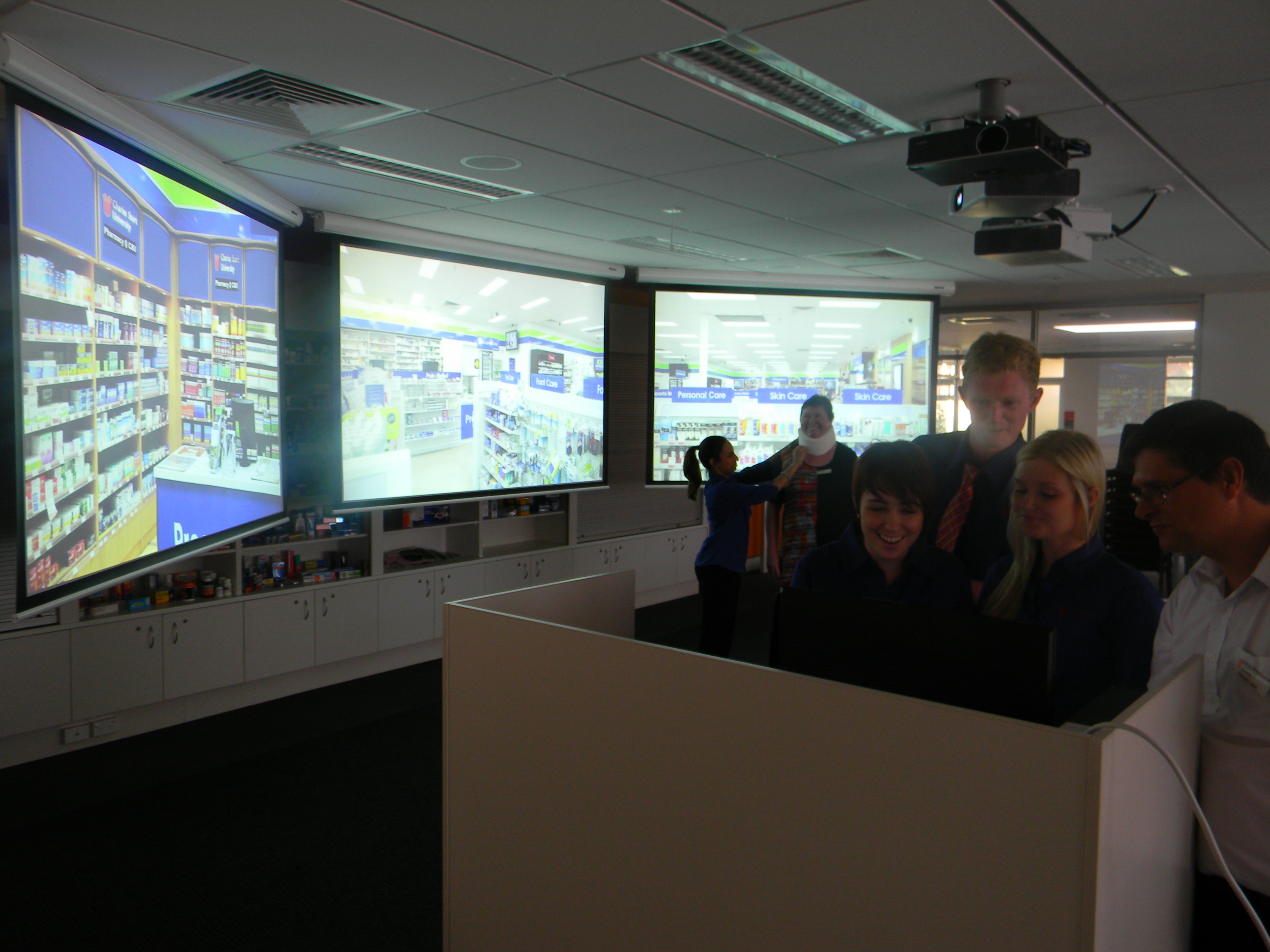 Charles Sturt University (CSU) Bachelor of Pharmacy students will enter a whole new virtual world this year.
Charles Sturt University (CSU) Bachelor of Pharmacy students will enter a whole new virtual world this year.The University has installed ‘virtual pharmacies’ on its campuses in Orange and Wagga Wagga, allowing students to role play real-world scenarios they are likely to encounter during their practical work placements in the community.
Head of CSU's School of Biomedical Sciences, Associate Professor Lyn Angel, said the new facilities reflected the University’s focus on producing job-ready graduates who were highly valued by industry.
“Charles Sturt University seeks input from the profession and the pharmaceutical industry throughout our four year pharmacy program, and it’s one of the reasons why our graduate employment rate consistently approaches 100 per cent,” she said.
“I commonly hear from the profession that our students are not afraid to come out from behind the counter and engage with the customer and that they have a confidence which encourages patients to trust them.
“We find pharmacists welcome Charles Sturt University students on work placements and as interns because they understand pharmacy is about more than just preparing and handing over medication.”
CSU Pharmacy discipline leader Associate Professor Maree Simpson said the virtual pharmacy installations are designed to further prepare students to hit the ground running.
“The virtual pharmacy uses three video screens which can run simulations, either together or simultaneously,” she said.
“Each of the scenarios has been developed with advice from the profession to reflect real-world situations, and specifically for the University’s use so that they are tailored to our curriculum.
 “It means students can experience what it might be like to be the pharmacist in charge and be dealing with a customer at the register while delegating other staff to deal with a shoplifter in one part of the shop while another staff member helps someone who is sick.”
“It means students can experience what it might be like to be the pharmacist in charge and be dealing with a customer at the register while delegating other staff to deal with a shoplifter in one part of the shop while another staff member helps someone who is sick.”The shelves of the virtual pharmacy are filled with real medications and students will be required to wear their placement uniforms to each practical session.
“It's designed to assist with their professional socialization and identity,” Professor Simpson said.
“We want our graduates to be work-ready. We want them to be able to walk in to a placement and expect there will be a cash register to operate, medicines to stock, orders to put away, customers to assist and economic decisions to be made.”





Social
Explore the world of social